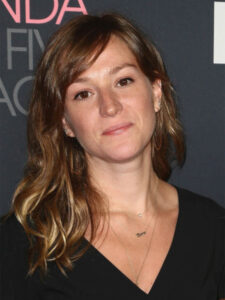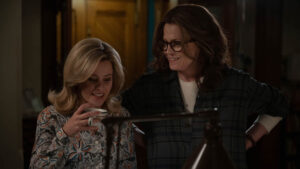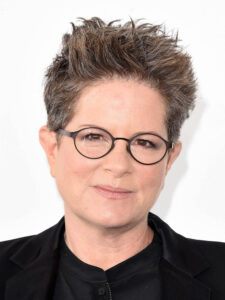Sundance Review: Past (and Future?) of Abortion, via Doc and Fiction, in “The Janes” and “Call Jane”
Written by: Christopher Llewellyn Reed | February 1st, 2022

On January 22, 1973, the United States Supreme Court, in its 7-2 Roe v. Wade decision, granted women the right to terminate their pregnancies, thereby invalidating any state laws banning abortion. It was a great day for women’s rights, though ever since there have been efforts, first mild but now growing in both intensity and effectiveness, to subvert that decision and/or attempt to reverse it. With a new conservative supermajority on the Supreme Court in our present, it is quite possible that, in 2022, we will see Roe v. Wade either severely curtailed or overturned, returning the control of women’s bodies to the states. Care to see what that might look like, in case you weren’t around and conscious pre-1973? Two new films, one a documentary and one a fictionalized narrative (based on the same story), The Janes and Call Jane, are here to help you experience (or re-experience) the past. It wasn’t pretty.

Even if one vehemently and ardently believes that human life begins at conception, and one is not merely trying to control women, the fact remains that banning abortion will not prevent abortions. It will just make access to safe medical procedures extremely difficult, or impossible, for those without means. So it was pre-1973, and so it will be again. And many of the folks arguing against protecting a woman’s right to choose, if history is any indicator, might well be more than willing to assist people in their own orbit (particularly daughters, wives, girlfriends, lovers, etc.) who find themselves pregnant. Hypocrisy runs deep.

The Janes (Tia Lessin/Emma Pildes, 2022) 4 out of 4 stars.
Which brings us first to The Janes. Directed by Tia Lessin (Citizen Koch) and Emma Pildes (making her helming debut), this documentary follows the activities of the late-1960s/early-1970s titular collective, a group of women who banded together to provide access to safe abortions for other women in the Chicago area. Featuring interviews with surviving members as well as with doctors, lawyers and at least one policeman from that era, the movie makes the critical case for why “The Janes” were necessary and how they operated. Interestingly, there was even a nun involved with the organization, and another liberal Christian group that supported them. Though they charged for their services, they also tried to offer as many cheap or free abortions as they could, so that poor women—and especially poor women of color—could benefit.
Eventually, in 1972, the Chicago Police Department received a tip on which they had to act, though the film posits that The Janes were hardly an unknown secret (after all, even some policewomen, or girlfriends of policemen, used them). But not to worry, for with the Supreme Court deliberating on Roe v. Wade, all their lawyer had to do was stall, and once abortion was made legal, all charges were dropped. Don’t let the happy ending fool you, however, as the film is filled with tales of real-world horror and death, the results of botched and medically unsafe procedures. Here’s hoping that The Janes is merely an historical document and not a harbinger of things to come again.

Call Jane (Phyllis Nagy, 2022) 3 out of 4 stars.
In Call Jane, directed by Phyllis Nagy (screenwriter of Carol), we get the same story, more or less. That the fictionalized version suffers by comparison to the nonfiction original does not take away from its positives, foremost among them the cast. Headlined by Elizabeth Banks (Brightburn) and Sigourney Weaver (The Good House), the movie covers a lot of the same territory as The Janes, except that we meet the activists by way of a housewife, Joy (Banks), whose unexpected pregnancy proves life-threatening. When the male doctors at the hospital (the same one where her husband works) deny her the right to an abortion, since all they care about is the viability of the fetus and not Joy’s life, she takes desperate matters into her own hands. Or rather, The Janes’ hands, after seeing their posted flier.

Her abortion safely performed, Joy meets Virginia (Weaver), the group’s leader, and soon she starts helping out, albeit at first reluctantly. One thing leads to another, and by the end, Joy is far more than a mere assistant. Filled with rousing moments and carefully crafted emotional beats, Call Jane frequently feels over-scripted, but its messaging is always powerful: let women decide what to do with their own bodies. And above all, keep men out of that decision process. Always watchable, even if sometimes dramatically clunky, the film is a great showcase for its ensemble, with Wunmi Mosaku (His House) an additional standout (unfortunately, Grace Edwards, the actress playing Joy’s 15-year-old daughter, looks too old for her part). Simplified though the plot may be, Call Jane still has important things to say.

